Review for Umberto D
‘Umberto D’ may be 65 years old this year, but it’s arguably as apposite as the day it was released, telling the tale of an elderly man, now in retirement, suffering the indignities of trying to survive on a meagre pension in a world which has little or no respect for those past their ‘work by date’.
It is also considered by many as a masterpiece of Italian neo-realist cinema, surpassing even its director’s most well-known film, the beloved ‘Bicycle Thieves’ for critical acclaim.
At last, we in the UK can now get our grasping paws on a Blu-ray edition, released to much praise in the US some years ago. It’s a worthy release on just about every level; not least because it is such a great film, but also thanks to its pristine transfer. If you buy just one film this month, maybe this is the one to go for.
Umberto Domenico Ferrari, the ‘hero’ of the film, was once a hard-working, well-respected citizen of Rome – able to pay his rent on time, and make a contribution to the community of which he was a part. Now in retirement, with a pension that barely covers the rent on his room in a house now owned by a callous land-lady focused only on her own dubious self-interest, he can barely scrape enough money to buy food for either himself or his dog. Reduced to soup kitchens, and sneaking his dog in for any extras, he also finds that, as he has fallen behind with his rent, his landlady is hell-bent on evicting him.
It’s an unhappy state of affairs which is clearly affecting hundreds of elderly gentlemen in the city – if the protest march that opens the film is any indication.
Umberto (played by an academic linguist friend of the directors, Carlo Battisti, who had never taken an acting role previously nor had another since) tries to sell everything in his possession to pay back his mounting debt and keep a roof over himself and his beloved dog’s head. He passes the money to a young maid, Maria (Maria Pia Casilio ) still virtually a child herself, who has recently discovered she is pregnant, though unsure who the Father might be. The idea is that she will pass the money to the landlady (who by now will not communicate with Umberto, treating him as if he is a completely invisible presence) but she refuses to take part-payment, preferring to progress with her plans to get rid of the old man once and for all.
Falling ill, he calls an ambulance and discovers that, in addition to a weak heart, he now has tonsillitis, but the doctor’s refuse him any treatment as he is ‘too old’ – forcing him to leave the hospital.
On his return, he discovers that his room is being re-decorated without his permission and that his faithful dog, Filke, has been thrown out into the streets, to the mercy of the city dog collectors. Using what little money he has, he rushes to the dog pound where he sees the incinerators where dogs are placed alive to be destroyed (a nod to the Nazi gas chambers of the recent war perhaps) before finding Filke is alive.
The experience takes its toll and he falls into a deep depression. He decides it would be a blessing to take his own life but he has to sort out a suitable home for Filke first – no easy task.
The film is relentlessly bleak; almost documentary like in its realism and pace. It offers no solutions or respite. But it is beautifully shot and, despite its tragic narrative, a compelling and memorable watch. There is very little emotion in the film – the facts are presented in a totally non-melodramatic way which merely enhances the coldness of the world Umberto finds himself in; unfeeling, uncaring, non-emotional.
There are plenty of sequences without speech. We often see long sequences devoid of cuts which focus on Umberto’s eyes and reflecting the pain and indignity he suffers. One particular poignant moment is when he is reduced to begging, he cannot quite go through with it, turning his hand downward to refuse the charity at the very moment it is offered, reminding us that Umberto was once a proud and upstanding citizen who refuses to accept how far he has fallen.
The transfer is as flawless as any I have seen, presented in its original aspect ratio of 1.37:1, with a high definition 1080p transfer, with every frame looking like a perfect cinematic still. There are no visible signs of wear and tear either. (Maybe this is the same transfer that Criterion put out in the US from the original nitrates?)
Audio is LPCM Mono Italian with excellent English subtitles which are barely noticeable after the first few minutes. Indeed, the film has relatively little dialogue so can be enjoyed by all.
The only extra feature on this Cult Films edition is an all-star tribute featuring fans like Ken Loach and Mike Leigh. You also get a reversible cover, one side of which is a still from the film and the other an original Italian movie poster - which is nice.
Umberto D is a brilliant and important film which will stay with you for some days after viewing. This Criterion edition is superb and it’s hard to imagine experiencing a better release. Recommended.

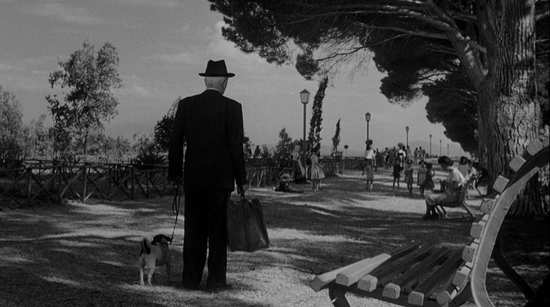
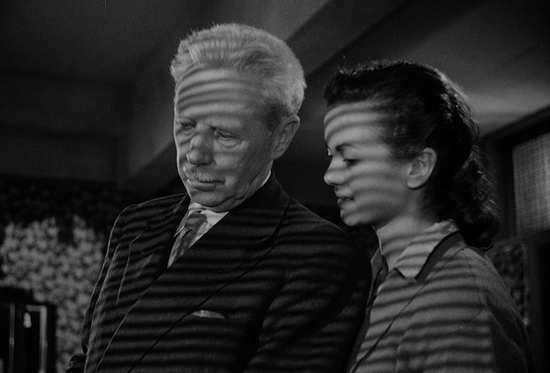
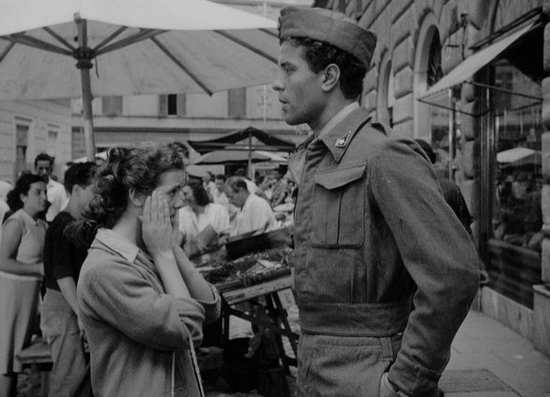
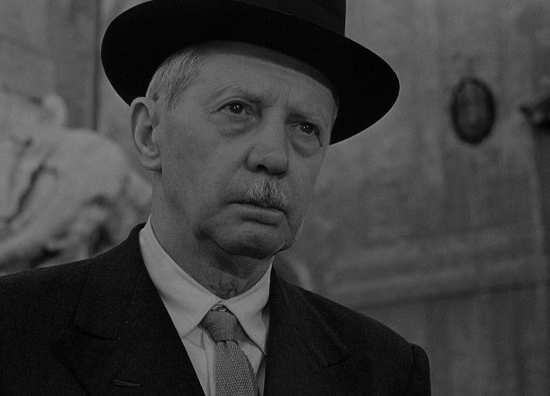
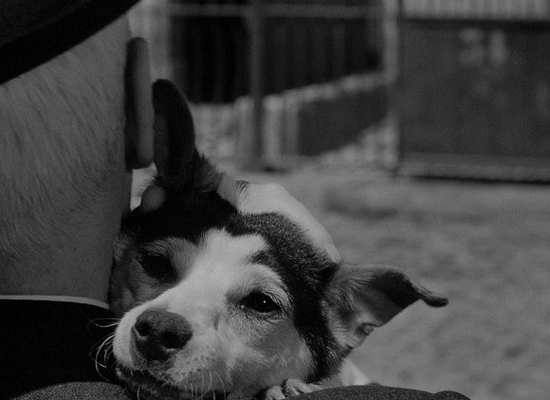
Your Opinions and Comments
Be the first to post a comment!